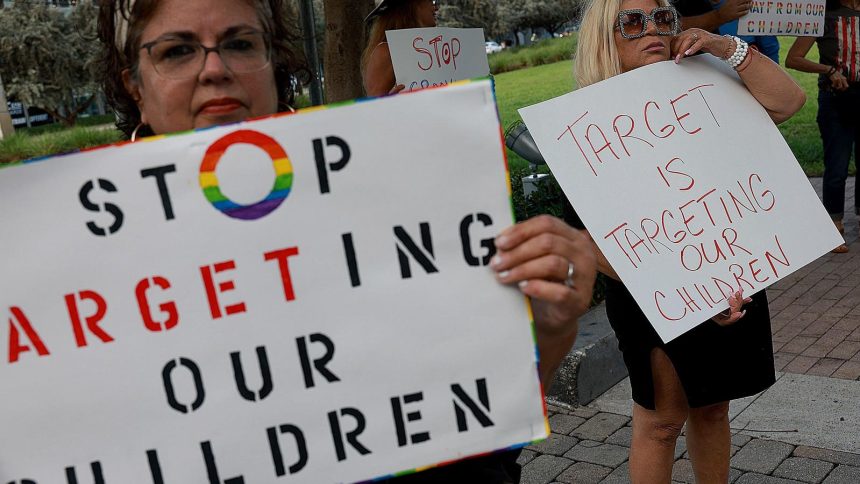Target Corporation Faces Legal and Public Relations Challenges Over DEI Policies
Target Corporation finds itself embroiled in a complex legal and public relations battle stemming from its diversity, equity, and inclusion (DEI) policies. A class action lawsuit, filed on behalf of the City of Riviera Beach Police Pension Fund, alleges that Target defrauded investors by misrepresenting the risks associated with its DEI initiatives and broader environmental, social, and governance (ESG) policies. The lawsuit contends that Target’s public statements regarding these initiatives were "false and misleading," failing to adequately disclose the potential for negative consequences, such as consumer backlash and declining stock prices. As a result, the lawsuit claims, the company’s stock price was artificially inflated, and board members secured re-election under false pretenses, causing further damages to investors. The class action lawsuit encompasses individuals who purchased Target common stock between August 26, 2022, and November 19, 2024, and is being handled by the law firm Grant & Eisenhofer. This case is linked to an earlier lawsuit filed by America First Legal, a conservative nonprofit organization, on behalf of shareholder Brian Craig, raising similar concerns about Target’s DEI practices.
The core of the lawsuits revolves around Target’s 2023 LGBT-Pride Campaign, which triggered significant consumer backlash and boycotts, driving customers to competitors like Walmart. The plaintiffs argue that this boycott, and the subsequent decline in Target’s stock price, demonstrates the undisclosed risks associated with the company’s DEI initiatives. The lawsuits accuse Target of prioritizing "political and social goals" over shareholder interests, effectively misusing investor funds to pursue agendas that ultimately harmed the company’s financial performance. Target’s alleged failure to transparently communicate the potential for such negative reactions forms the crux of the legal challenges. While Target has yet to issue a formal response to the most recent lawsuit, the company’s actions and statements related to the earlier America First Legal lawsuit suggest a defense centered on characterizing the issues as mere disagreements over business decisions and maintaining that adequate warnings were provided to investors.
Adding another layer of complexity to the situation, Target’s recent announcement of scaling back its DEI initiatives, specifically concluding its three-year diversity, equity, and inclusion goals, has sparked further controversy. Civil rights leaders responded by calling for a boycott of Target, accusing the company of bowing to political pressure and abandoning its commitment to racial equity. This boycott, planned to coincide with Black History Month, further underscores the polarized public opinion surrounding Target’s DEI policies. The contrasting reactions from investors, who initiated legal action over the perceived risks of DEI initiatives, and civil rights groups, who criticize the company for retreating from these same initiatives, highlight the challenging balancing act Target faces in navigating these sensitive issues.
The backdrop to this controversy includes a broader debate over the role of corporations in promoting social and political agendas. The National Center for Public Policy Research (NCPPR), a conservative think tank, has been actively engaging with companies like Target and Costco regarding their DEI policies. The NCPPR submitted a proxy proposal to Costco, urging the company to assess the potential risks associated with its DEI initiatives, and Costco shareholders overwhelmingly voted in support of the company’s current DEI programs. This outcome contrasts sharply with the legal challenges facing Target, suggesting varying levels of investor and public acceptance of corporate DEI initiatives.
The NCPPR’s involvement highlights a growing trend of shareholder activism focused on ESG issues. While some investors and advocacy groups applaud companies for embracing DEI and other ESG principles, others express concerns about the potential for these initiatives to distract from core business objectives or expose companies to unnecessary risks. The differing responses to Target and Costco’s DEI programs demonstrate the complexities and nuances of this ongoing debate. The letter from 19 Attorneys General to Costco, requesting clarification on the company’s DEI policies, further underscores the politicized nature of these issues.
Target’s current predicament serves as a case study in the challenges companies face in navigating the increasingly complex landscape of social and political activism. The lawsuits, boycotts, and public pressure from various stakeholders underscore the need for clear communication, careful risk assessment, and a well-defined strategy for addressing DEI and other ESG issues. The outcomes of the legal challenges and the effectiveness of the boycotts will likely have significant implications for how corporations approach these sensitive topics in the future. Target’s experience highlights the need for a balanced and nuanced approach, one that considers the interests of all stakeholders, including shareholders, employees, customers, and the broader community. The ongoing debate surrounding Target’s DEI policies serves as a reminder that navigating these issues requires careful consideration, transparent communication, and a commitment to finding common ground.



